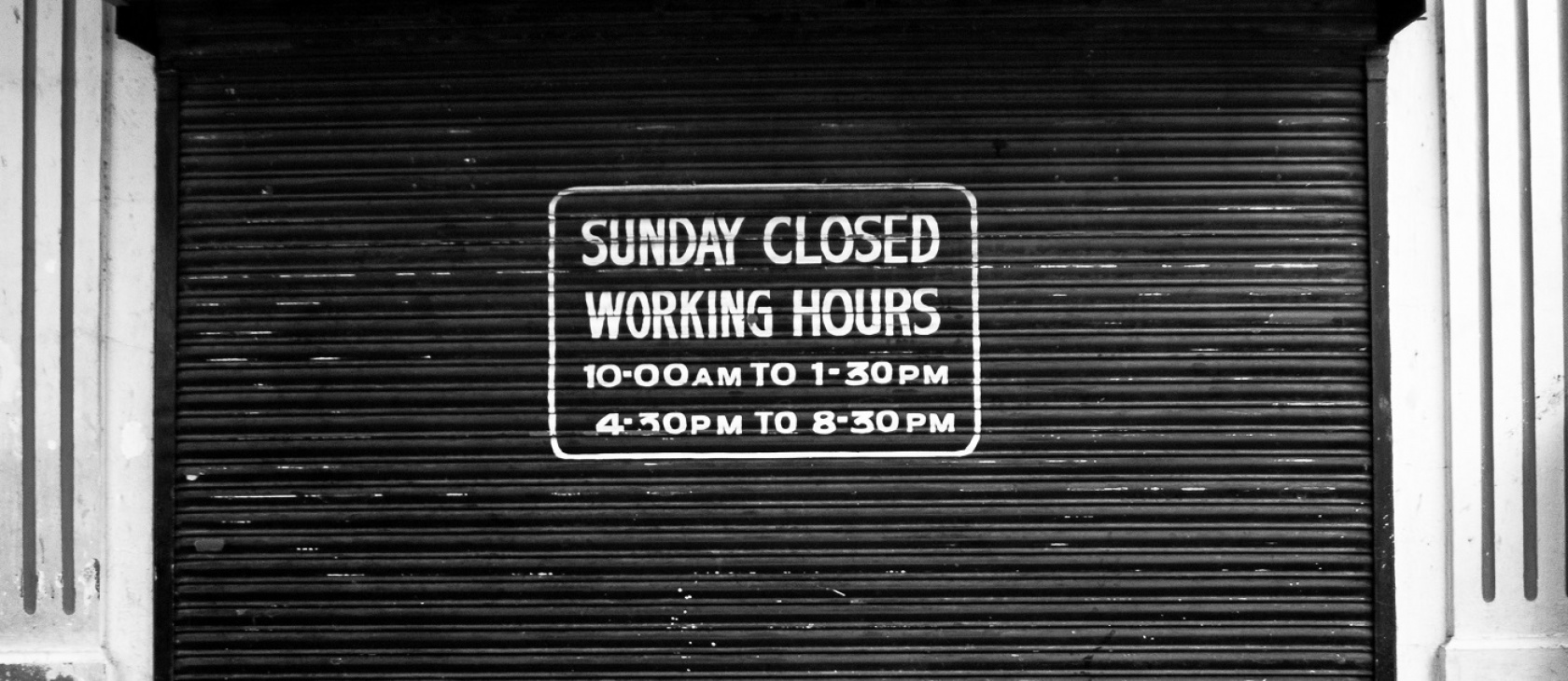On November 24, the lower house of the Polish parliament, the Sejm, passed a bill that will gradually phase out Sunday shopping resulting in an almost-complete ban in 2020. The bill was passed with the votes of ruling Law and Justice Party and a majority of Kukiz ‘15 movement MPs, despite previous warnings issued by many Polish free-market think tanks for more than a year.
The bill is promoted as a proof of adherence to Poland’s Catholic tradition. Nevertheless, its many loopholes expose it as yet another way to secure the political support of the powerful Solidarity trade union. In its current iteration, the bill allows more than 30 exceptions, mostly discriminating against large shopping centers. This fits well with the mentality of the Law and Justice government, which sees large chain stores as a threat. The religious motivation was at best tertiary. But the cost, as usual, will be paid by consumers.
The bill presented by the public committee “Free Sundays” lead by Solidarity – the largest trade union in Poland – was subjected to many changes. Only a few weeks before its passing, a former chairman of Solidarity and chairman of the standing subcommittee of the Labor Market which was working on the bill, Janusz Śniadek, presented a compromise solution that would limit trade to just two Sundays a month. Although abandoned after heavy criticism from both Solidarity and Polish clergy, this proposition shows that the motivation behind the ruling party’s decision to limit trade was purely political.
The final bill that passed through the Sejm is much closer to Solidarity’s initial proposal. It will gradually phase out Sunday shopping. Beginning next March 1, the trade ban will exclude two Sundays a month: the first and the last. Beginning in 2019, trade will be allowed only on one Sunday a month. Finally, in 2020 there will be a complete ban on shopping, except for seven Sundays a year: three Sundays that precede public holidays and the last Sundays of January, April, June, and August.
Besides gaining the favor of trade unions, which constitute a large part of Law and Justice’s most faithful electorate, the ban fits well with the government’s narrative that presents large shopping centers owned by foreign companies as a threat to small, Polish entrepreneurs. After imposing a sales tax on large retailers while exempting smaller stores, this is yet another example of government discrimination against them.
The religious motivation was at best tertiary. But the cost, as usual, will be paid by consumers.
As one of the leading Polish free-market think tanks, Civil Development Forum (FOR), states, all the exclusions and loopholes within the bill raise serious doubts about its constitutionality. Although nothing indicates that Polish President Andrzej Duda will veto it, at least some members of Law and Justice itself seem to admit the sloppiness of the bill.
Right now the Senate is working on the bill and has already announced through Senator Stanisław Kogut, a member of Law and Justice, that it will most likely introduce some amendments. Sadly, none of them seems to be made with consumers’ interests in mind. The Senate will most likely try to plug at least some exceptions that could potentially allow commercial chains owning their own bakeries to bypass the law.
Encouraged by its initial success, Solidarity is pushing for further regulation. Alfred Bujara, the chairman of the national section of commerce employees of Solidarity, commented that now it’s time to open a new front: extend the trade ban to the internet and include logistics centers, as well.
Including internet commerce platforms in the ban can be seen as an attempt to learn from the experience of one of Poland’s neighbors. When Hungary introduced a similar law limiting shopping in large stores in 2015, food trade over the internet increased by more than 30 percent. As in many similar cases, people will find a way to evade any law that does not take their preferences into consideration. As in Hungary, this is bound to happen in Poland, and the amount of loopholes under consideration before the bill has even been signed into law proves that beyond any doubt.
This ineffectiveness in enforcing the ban, and vast dissatisfaction with the law, forced the Hungarian government to repeal the law a year after its introduction. Its Polish counterpart might meet the same fate.
Public support for the ban is low, even among commerce employees. According to a SW Research survey, less than one-in-four interviewees supports the Sunday shopping ban. But what’s even more important is the expected negative economic impact that the bill will have on the Polish economy.
The Warsaw Enterprise Institute, a think tank of the Union of Entrepreneurs and Employers (ZPP), issued a report pointing to many negative consequences. According to WEI’s report, the most severe ones could affect employment in the commerce sector, decrease revenues, and increase the amount of food left unsold until it is no longer fit for human consumption.
More importantly, the report disproved one of the main arguments presented by supporters of the bill. Contrary to their opinions, the data show that small shops would not benefit from the ban, as its imposition leads to an overall decrease in revenues instead of their diversification.
It is no surprise that an organization strongly tied to real-life struggles of entrepreneurs was able to come up with the sanest and truly consensual proposition in the ongoing debate. Instead of introducing a new bill, WEI argued in favor of changing the labor law to grant every commerce employee at least two mandatory free Sundays a month. Sadly, this proposition was lost in subcommittee’s debate. Nothing suggests that the lawmakers will even consider such an approach, which tries to reconcile the interests of both consumers and commerce employees.
Right now, all we can hope for is that the bill will soon follow its Hungarian predecessor’s footsteps and that the Law and Justice government will shortly backtrack on its harmful proposition. In the meantime, while no longer possible in large stores, Sunday shopping will thrive – this time inside gas stations which are exempted from the bill and which are, right now, planning to expand their product line.













